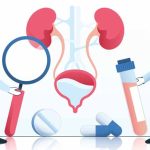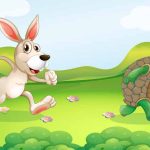Mathematics Meets Nutrition
Integrate mathematical concepts into nutrition education activities. Use counting, sorting, and measuring as tools to explore portion sizes and food quantities. This cross-disciplinary approach not only reinforces mathematical skills but also provides practical insights into the significance of balanced portions for a healthy diet.
Encourage language development by involving preschoolers in the creation of simple recipes. This activity not only enhances vocabulary but also fosters communication skills. As children collaborate to write or dictate a recipe, they engage in a meaningful learning experience that combines literacy with nutritional understanding.
Technology as an Educational Aid
- Virtual Farm Tours and Nutrition Apps
- Interactive Learning Platforms
Leverage technology to enhance nutrition education. Take virtual farm tours to expose preschoolers to the agricultural origins of their food. Introduce interactive nutrition apps designed for young learners, offering engaging games and activities that reinforce healthy eating habits in a digital format.
Explore interactive learning platforms that cater specifically to early childhood education. These platforms often feature animated videos, games, and quizzes that make learning about nutrition enjoyable and interactive. Integrating technology in moderation adds a contemporary dimension to traditional teaching methods.
Sustainability and Nutrition
- Teaching the Connection
- Upcycling and Healthy Snack Creations
Incorporate lessons on sustainability within nutrition education activities. Discuss the environmental impact of food choices, introducing concepts like reducing food waste and choosing locally sourced produce. Instill an understanding that making mindful nutritional choices extends beyond personal health to the health of the planet.
Integrate sustainability with creativity by organizing activities that involve upcycling materials into useful items, such as reusable snack containers. Combine this with the creation of healthy snacks, promoting the dual concepts of eco-friendliness and nutritious eating. Such initiatives instill a sense of responsibility towards both personal and planetary well-being.
Physical Health Beyond Nutrition
- Outdoor Physical Activities
- Yoga and Mindful Eating
Combine physical activity with nutritional learning through outdoor play. Activities like a ‘fruit and vegetable scavenger hunt’ or ‘healthy snack relays’ not only keep children active but also reinforce the connection between a healthy lifestyle and overall well-being. This synergy promotes a holistic understanding of health.
Introduce basic yoga and mindfulness exercises to complement nutrition education. Teach simple poses and breathing techniques, emphasising their connection to a healthy mind and body. Connect these practices with mindful eating, reinforcing the importance of being present and attentive during meals.
The Role of Educators in Nutrition Education
- Professional Development for Educators
- Creating a Supportive Environment
Invest in ongoing professional development for educators to stay abreast of the latest research and best practices in nutrition education. Workshops, seminars, and training sessions empower educators with the knowledge and tools needed to deliver impactful and up-to-date nutrition education.
Foster a supportive environment within the preschool setting. Ensure that educators have the resources and encouragement needed to implement nutrition education effectively. This includes access to educational materials, collaboration with nutrition experts, and the flexibility to tailor activities to suit the unique needs of their students.
Nutrition Education as a Gateway to Other Learning Areas
- Cross-Curricular Integration
- Art and Nutrition
Explore opportunities for cross-curricular integration, where nutrition education seamlessly intersects with other subjects. For instance, a science lesson on the human body can delve into the digestive system, emphasizing the role of different nutrients. This multidisciplinary approach enriches the learning experience.
Merge artistic expression with nutrition education by incorporating art projects. Activities like ‘create your own healthy plate collage’ or ‘food group paintings’ not only stimulate creativity but also reinforce understanding. The combination of art and nutrition transforms learning into a holistic and engaging experience.
Building Resilience and Life Skills
- Cultivating Food Literacy
- Cooking as a Life Skill
Go beyond nutritional basics and cultivate food literacy. Teach children how to read food labels, understand nutritional information, and make informed choices. Building food literacy equips preschoolers with skills that will empower them to make healthier choices as they navigate the complexities of the modern food landscape.
Position cooking as a valuable life skill within the realm of nutrition education. Introduce age-appropriate cooking activities that teach basic culinary skills. These experiences not only contribute to a child’s sense of independence but also lay the groundwork for a lifelong ability to prepare wholesome meals.
Parental Empowerment and Involvement
- Interactive Parent-Child Cooking Sessions
- Educational Parental Resources
Facilitate interactive cooking sessions that involve both parents and children. This collaborative experience not only reinforces nutritional concepts learned in preschool but also provides an opportunity for parents to model and instil healthy cooking habits at home.
Equip parents with educational resources to reinforce nutrition lessons at home. Provide informative pamphlets, online materials, and interactive tools that align with the curriculum. This collaborative approach strengthens the partnership between educators and parents in nurturing healthy habits.
Challenges and Solutions in Nutrition Education
- Navigating Dietary Preferences and Restrictions
- Overcoming Resource Limitations
Address the challenges posed by diverse dietary preferences and restrictions within the preschool community. Create a culture of understanding and inclusivity, ensuring that nutrition education activities can be tailored to accommodate various needs while still conveying essential principles.
Acknowledge resource limitations and work creatively to overcome them. Optimize existing resources, seek community support, and explore partnerships with local businesses or organizations to supplement educational materials and experiences. Resourcefulness is key to delivering effective nutrition education.
Continuous Improvement: Assessing Impact and Adapting Strategies
- Assessing Long-Term Impact
- Feedback Loops for Continuous Improvement
Implement a long-term assessment strategy to gauge the impact of nutrition education on preschoolers. Track students’ habits and attitudes towards nutrition over an extended period, providing valuable insights into the lasting effects of early education on lifestyle choices.
Establish feedback loops involving educators, parents, and even the preschoolers themselves. Encourage open communication and gather insights on the effectiveness of nutrition education activities. This collaborative approach allows for continuous improvement and refinement of teaching strategies.
In delving deeper into the realm of nutrition education activities for preschool classrooms, it becomes evident that the possibilities are vast and interconnected. From integrating technology to incorporating sustainability, promoting physical health, empowering educators, and extending the learning experience into everyday life, a comprehensive approach emerges.
This nuanced exploration reinforces the idea that nutrition education is not a standalone concept but a dynamic force woven into the fabric of early childhood education. By recognizing the potential in every activity, embracing interdisciplinary connections, and prioritising continuous improvement, educators can unlock the full spectrum of benefits that nutrition education brings to young learners.
As we navigate the intricate tapestry of nutrition education in preschools, EuroKids stands as a beacon of holistic learning. Enrol your child today to experience an educational journey that goes beyond textbooks, integrating nutrition education seamlessly into their formative years. Visit Eurokids to embark on a transformative learning experience that lays the groundwork for a healthy and successful future.
















